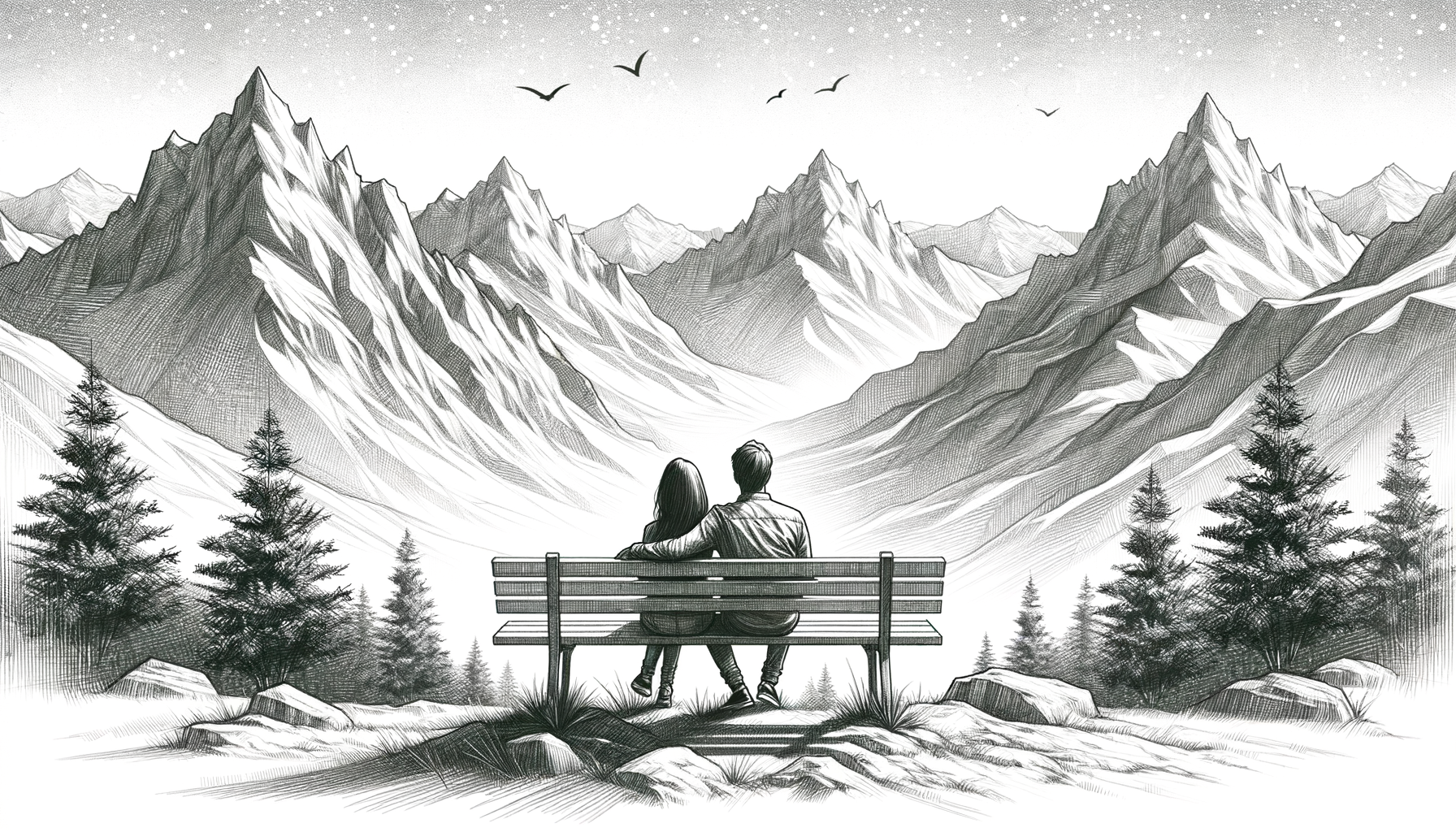I grew up in Boulder, Colorado, which, as far as towns go, is essentially the dating profile equivalent of a person who lists "yoga," "adventure," and "farmer's markets" under hobbies. It's one of those places where a casual first date might involve scaling a literal boulder or debating which kombucha ranks supreme. And yes, I realize that makes it sound like a parody of itself—but for me, Boulder was (and still is) a place that shaped how I connect with the world and, by extension, how I approach relationships.
They say environment shapes identity, and nowhere is that truer than in a place where your daily life might involve dodging trail runners on your morning walk or striking up a conversation with a stranger over sustainably sourced coffee beans. Growing up in this outdoor utopia has given me what I’ll politely refer to as “Boulder Brain.” It’s a mindset shaped by fresh air, too much granola, and a relentless passion for getting to the heart of what matters—whether that’s reducing your carbon footprint or figuring out why your last relationship fizzled.
Where You’re From Isn’t Just Home—It’s Context
In Boulder, we learn early that connection is about more than words. When you grow up surrounded by mountains, streams, and dramatic slices of endless sky, you develop a sense of perspective. Every hike I took as a teenager was an unwitting lesson in relationships: how to gauge when to push forward, when to pause, and when to just stand in awe of the view. Nature has a way of telling you that good things take time (and maybe some decent footwear).
This idea stayed with me, even as I went off to college and started navigating the awkward terrain of dating. Want to really understand someone? Take them camping. You'll learn all you need to know when they forget to pack a sleeping bag on a 30-degree night or react poorly to a broken tent pole. It’s like relationship boot camp—but with s’mores.
And that’s lesson number one: Your environment teaches you what really matters, whether you’re standing on a mountaintop or figuring out how to have deeper conversations over dinner. Where you’re from doesn’t just tell people your zip code—it gives context to who you are and what shaped you.
What Boulder Taught Me About Listening
If Boulder had a town mantra, it would probably sound something like: “Don’t just hear—listen.” This is a place where people talk earnestly about everything, from the best route up Sanitas trail to the existential dilemma of choosing almond milk over oat.
But for me, this principle wasn’t just about shallow conversations with cute baristas (though there was plenty of that). It taught me something foundational about relationships: listening is a skill, not an instinct. And it doesn’t just mean sitting there and nodding while the other person vents about their day. It’s about engaging purposefully, asking questions, and making someone feel seen—not waiting for your turn to talk.
Funny enough, that principle gets tested time and time again in the modern dating world, where text threads often feel more like chess games. Learning to listen—to really listen—means stepping back from overthinking your next play and focusing on the here and now. If my childhood taught me anything, it’s that sometimes you need to quiet the soundtrack in your own head to hear what nature (and people) are really saying.
Want a pro tip? Practice this form of active listening in the smallest ways. When your date tells you about their favorite book or how they spent their weekend, don’t just respond on autopilot. Ask follow-up questions that show you’re invested. You’d be surprised how quickly this swaps “eh” connection for something magnetic.
Lessons From First Dates on the Trail
Here’s a Boulder cliché that’s 100% true: People here love first dates that involve physical activity. And while most places might gravitate toward cocktails or coffee, this has resulted in more than one “romantic” escapade that doubled as deep cardio. Like the time Natalie suggested we hike a five-mile trail on our first date, which sounded charming until I realized she was training for a half marathon and I, uh, was not.
But those first dates became lessons in compatibility. It’s easy to talk about deep values in the cozy confines of a coffee shop, but get someone in a real environment—a messy one, where they’re throwing on a windbreaker mid-sentence—and you start to see the substance beneath their words. Are they patient when the incline gets steep? Do they cheer you on when you need encouragement? Or do they bolt up the trail and disappear like they’re auditioning for a REI catalog?
Even if you’re not near the mountains, these ideas apply. Take note of who someone is when circumstances aren’t perfect. It could be waiting extra long for food at a crowded restaurant or figuring out fries vs. salad at brunch. (Pro tip: Always order the fries—they’re a solid barometer of priorities.) How they handle missteps and annoyances reveals much more about partnership potential than whether they prefer dogs or cats.
Dating Is Just Another Trail, Minus the Map
One thing I learned the hard way growing up in Boulder is that no two trails are the same—some are smooth and scenic; others are rocky, tangled with roots, and way longer than expected. Love is no different. It’s never as straightforward as the rom-coms (or even our own expectations) make it out to be.
And yet so many of us step into relationships as if we have some kind of map that promises a straight shot to the peak. Spoiler alert: We don’t. What we have instead are guideposts, tools we pick up along the way, and that gut feeling telling us whether to keep going or turn back.
Boulder taught me to embrace the surprises in the trail, from the perfect wildflower field you weren’t expecting to the sudden thunderstorm that soaks you down to your socks. In dating, it’s the same trick—to stop expecting perfection and start valuing resilience. Do you bounce back together from missteps? Do you laugh when plans go sideways? These moments, in retrospect, become the glue of any relationship.
Your Place, Your Story
You don’t grow up in Boulder without developing an appreciation for balance: between work and play, between independence and connection. Nature makes you prioritize what matters and let go of what doesn’t. And while dating can sometimes feel like an uphill scramble—one where your footing isn’t always sure—it’s in those challenges that you find your true footing.
Wherever you’re from, your environment has influenced you, too. Embrace it. Let it inspire how you approach relationships. Listen deeply. Notice the small things. Appreciate the view, even if it’s not perfect yet. Boulder may have shaped me, but the lessons I’ve carried are universal: Connection, like a good hike, is always worth the effort, even when it asks more of you than you expected. And sometimes, the best parts of the journey aren’t even on the path you planned.




















